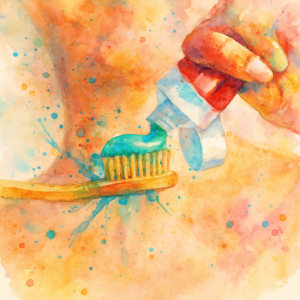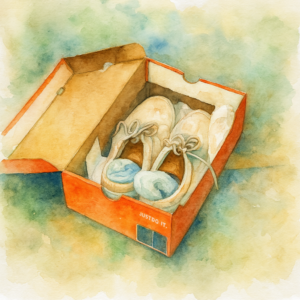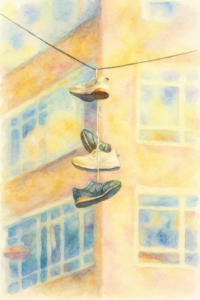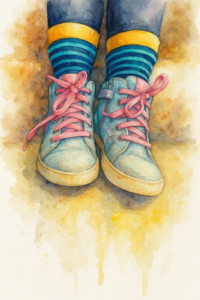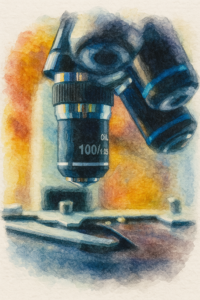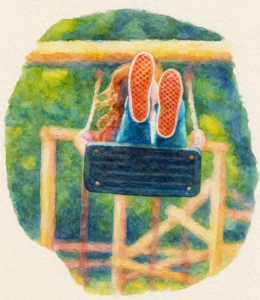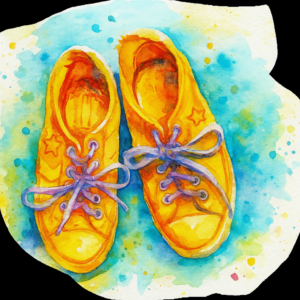Learn French with this clip from Les P’tits Bateaux. Find the full episode here. We do not own the content. The above audio sample and transcription is from Les P’tits Bateaux podcast. We do not own the content. Listen to the entire episode here. it won’t smell bad anymore? What’s opening up for you with…
Start quiz, type what you hear, then join the conversation.
Did you find this one challenging or easy? Did you hear something diffferent? What surprised you? What levels did you complete? Comment below and share what’s opening up for you with this quiz.
Learn French with this clip from Les P’tits Bateaux. Find the full episode here. We do not own the content.
The above audio sample and transcription is from Les P’tits Bateaux podcast. We do not own the content. Listen to the entire episode here.
it won’t smell bad anymore?
What’s opening up for you with this clip? Comment below with what was surprising, easy, challenging and/or interesting.
The snippet in English
Find a translation of this snippet here, how much of this did you hear?
— Et donc, si on nettoie une fois qu’on est passé sous la douche, c’est bon ? Ça sent plus mauvais ?
— Oui, alors ça, c’est l’hygiène. Et effectivement, le nettoyage va faire que les bactéries vont diminuer en nombre. On en aura toujours entre les pies, mais on en aura beaucoup moins — donc à ce moment-là, ça ne sentira plus.
— Et les chaussures qui puent, on les met au fond d’un placard ? Ou qu’est-ce qu’on en fait ?
— On est obligés de les enfermer pour éviter que les odeurs s’échappent et empestent toute la maison. Donc effectivement, il faut les enfermer. Il n’y a pas beaucoup de solutions — ou alors on les met dehors dans le jardin pour que ça s’aère. Ça aussi, c’est une bonne solution.
— So, if we clean ourselves after taking a shower, that’s good? It won’t smell bad anymore?
— Yes, that’s hygiene. And indeed, cleaning will reduce the number of bacteria. We’ll still have some between our toes, but we’ll have a lot less — so at that point, it won’t smell anymore.
— And what about smelly shoes? Do we put them at the back of a closet? Or what do we do with them?
— We have to lock them away to prevent the odors from escaping and stinking up the whole house. So yes, we have to lock them away. There aren’t many solutions — or we can put them outside in the garden to air them out. That’s also a good solution.
The above translation from Deepl
What does “Ça (ne) sent plus mauvais” mean?
Ça sent plus mauvais can mean “Ça ne sent plus mauvais” (“It no longer smells bad”) in spoken French, depending on context.
Here’s what happens:
In everyday conversation, French speakers often drop the “ne”, so:
- Ça ne sent plus mauvais (standard, written)
- becomes Ça sent plus mauvais (spoken, casual)
→ meaning: It no longer smells bad
BUT — the exact same sentence Ça sent plus mauvais can also mean It smells worse (comparative), if “plus” is used in the sense of “more.”
So: Without context, it’s ambiguous.
What does “au fond d’un placard” mean?
au fond d’un placard means “at the back of a cupboard” or “deep in a closet.”
J’ai retrouvé mon vieux pull au fond d’un placard.
(I found my old sweater at the back of a cupboard.)
Usage notes: Neutral and common in both spoken and written French. Au fond de implies something is tucked away, hidden, or forgotten in a deep or hard-to-reach spot.
Cultural note: In French storytelling or conversation, au fond d’un placard can suggest something neglected, long-lost, or even symbolic—like forgotten memories, secrets, or childhood items.
What does “s’échappent” mean?
s’échappent means “escape” or “get out.”
Des odeurs s’échappent de la cuisine.
(Scents are escaping from the kitchen.)
Usage notes: 3rd person plural of s’échapper. Reflexive verb used for things that slip away, escape, or leak out — smells, gas, people, ideas.
Cultural note: In French, s’échapper is often used for both literal and figurative escape — from a place (ils s’échappent de prison), or in emotional/spiritual contexts (ses pensées s’échappent). It’s softer than fuir, which implies urgency or danger.
What does “empestent” mean?
empestent means “reek” or “stink strongly.”
Tes chaussettes empestent la chambre !
(Your socks reek in the room!)
Usage notes: 3rd person plural form of empester. Informal and stronger than sentir mauvais. Suggests a very strong, unpleasant smell.
Cultural note: Common in complaints or exaggeration. Often used with smells that linger or invade a space. Can also be figurative: ces mensonges empestent l’hypocrisie (these lies reek of hypocrisy).
What does “dehors” mean?
dehors means “outside” or “out.”
Les enfants jouent dehors malgré la pluie.
(The children are playing outside despite the rain.)
Usage notes: Common in both spoken and written French. Can be used alone (as an adverb) or in phrases like mettre quelqu’un dehors (to throw someone out).
Cultural note: In everyday French, dehors often carries tone depending on context—gentle (va jouer dehors) or harsh (sors d’ici, dehors !). It’s also tied to outdoor life, nature, and public space, all valued parts of French culture.
What does “s’aère” mean?
s’aère means “gets aired out” or “is ventilated.”
Cette pièce s’aère mal, il fait trop chaud.
(This room doesn’t get much air; it’s too hot.)
Usage notes: Reflexive form of aérer (to air out or ventilate). Used for rooms, clothes, or even the body or mind (je m’aère l’esprit = I clear my head).
Cultural note: In France, especially in homes and schools, aérer une pièce is a daily habit — often associated with health and hygiene. You’ll hear on ouvre les fenêtres pour que ça s’aère (open the windows so it airs out) in homes, especially in winter.
Les P’tits Bateaux Podcast
Official synopsis: Les enfants posent des questions, des spécialistes leur répondent. Jeunes (et moins jeunes !) peuvent poser toutes les questions possibles et imaginables directement par message vocal via franceinter.fr, sauf pendant les vacances.
I recently discovered this podcast from InterFrance and love it. It’s kids posing questions and the host brings in experts to explain. And it’s aimed at young French kids, not French learners. That’s my favorite kind of content. Being for French kids is what makes it so good.
You’ve got real people (a kid, a host, and an expert), all speaking real French — no AI generated stuff here. The kid asks a question, and then an expert explains it in short, clear language. There’s a ton of repetition, natural turns of phrase, and just enough challenge to keep your ears working.
And because it’s meant for French-speaking kids, the adults naturally explain things simply but not condescendingly. You get exposed to rhythm, tone, interjections (bah, ben, alors), and full sentences — but also some real dialogue dynamics. And that’s gold if you’re trying to move from textbook filler to actually speaking and thinking in French.
Improving your French Listening Comprehension with Podcasts
On this site, fast spoken French is finally accessible to all levels. The tool break podcasts into short clips each set to transcription fill-in-the-blank practice. My favorite practice in class is always dictées. While they can seem overwhelming at first, the confidence boost and skills payoff for doing the work pays off. They’re perfect for anyone at any level, from advanced students to those just starting.
We use podcasts and our practice exercises to make it possible for anyone, anywhere to immerse in French with fun and ease. Join us and enjoy French, one short clip at a time. Let’s learn together!
Make the most of the site:
- Daily Podcast Listening: Start your day with a French podcast from our collection. Choose episodes that align with your interests to keep it engaging.
- Active Listening Practice: As you listen, try to pick out key phrases and vocabulary. Use our daily quizzes to test your understanding and reinforce learning.
- Repeat and Shadow: Listen to the same podcast segment multiple times. Try to mimic the pronunciation and intonation to improve your spoken French.
- Note-taking: Jot down new words or phrases you encounter. Review these notes regularly to enhance vocabulary retention.
- Reflect and Respond: After each episode, summarize the main points in French, either in writing or aloud. This helps in consolidating your learning and improving your expressive skills.
- Read More:
- True Beginner or A1 Learners: discover tips learning with podcasts at an introductory level.
- Discover all the podcast clips on FrenchIRL organized by level.
- Top Tips: Here’s how I make the most of my own site.
I created the French In Real Life project because I wanted to understand more than just my teacher and youtubers who cater to learners. I wanted to understand the French I hear in France. I hope you can benefit as much as I have. Become a supporting member for access to all clips.
What’s opening up for you?
Comment below with what’s opening up for you with this clip. What do you love about this? What was challenging? What was easy? Share your learning progress below!
Learn French with this clip from Les P’tits Bateaux. Find the full episode here. We do not own the content. The above audio sample and transcription is from Les P’tits Bateaux podcast. We do not own the content. Listen to the entire episode here. it won’t smell bad anymore? What’s opening up for you with…
Start quiz, type what you hear, then join the conversation.
Did you find this one challenging or easy? Did you hear something diffferent? What surprised you? What levels did you complete? Comment below and share what’s opening up for you with this quiz.
